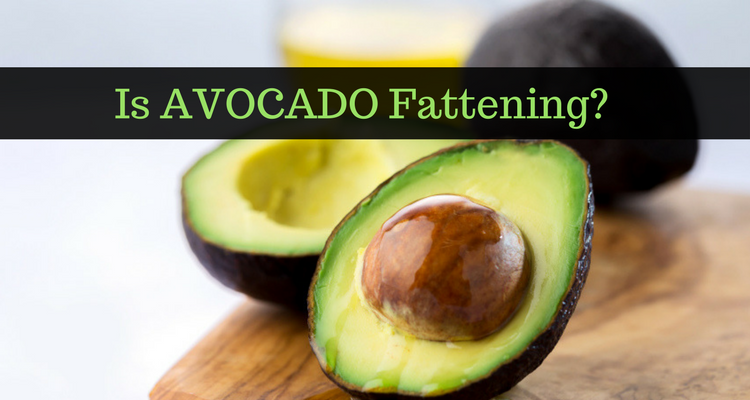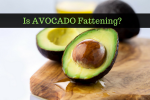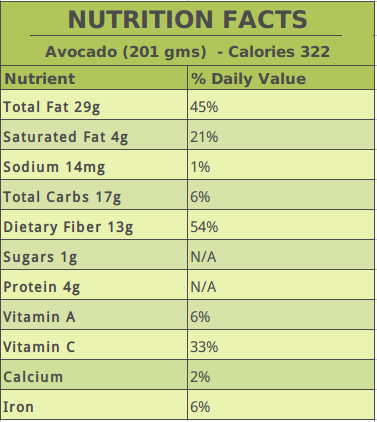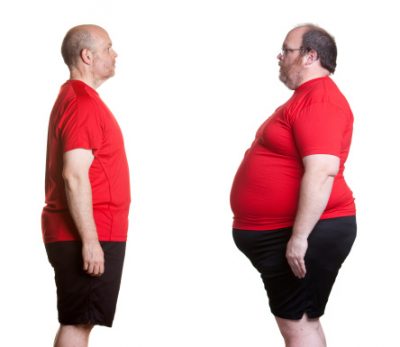
Avocados are native to South-Central Mexico. The fruit is mostly used in salads or as a spread. It is also used to prepare dips, smoothies, or purees. Avocados are an excellent source of good fats. However, due to the higher fat content, weight watchers usually avoid them. So, is avocado fattening? Does avocado increase weight?
There is a lot of misconception about avocados. Avocados do have saturated fats, but they also have healthy fats. However, the good fats and other vital nutrients they contain far outweigh the saturated fat content. To know if avocados are fattening, we need to take a look at the nutrition facts.
Is Avocado Fattening? Know the Nutrition Facts
To lose weight, you need to burn more calories than you consume. When considering all the factors such as gender, age, physical activity, and genes, diet impacts your body weight the most.
According to the Food and Nutrition Board of the Institute of Medicine, healthy adults should get 20 to 35% of their calories from fat.
Avocado Nutrition Chart
One avocado provides 29 grams of fats out of which only four grams are saturated. It provides 45% of the recommended daily intake of fats. An avocado has trace amounts of polyunsaturated and monounsaturated fats. Avocados are also considered a good source of zinc.
The Health Benefits of Avocados
Avocados have good amounts of monounsaturated fats including oleic and linoleic acid. These fats help regulate cholesterol. Excess LDL cholesterol may block the arterial linings.
The fats contained in avocados increase high-density lipoprotein (HDL) cholesterol and lower low-density lipoprotein (LDL) cholesterol and triglycerides. So, avocados help promote cardiovascular health. The fats also increase the basal metabolic rate (BMR). BMR is the rate at which the calories burn when you are still resting.
Avocados are a good source of fiber. One avocado provides 54% of the daily recommended intake of fiber. Fiber keeps you full for a longer period and indirectly helps in weight loss.
Avocados also regulate blood sugar levels. They have less sugar per serving compared to most other fruits.
An avocado provides 28% of the recommended daily intake of potassium, an electrolyte. While working out, your body loses electrolytes, and you need to replace them.
Making avocados a part of your weight loss diet will provide you with a good amount of vitamins and minerals. They contain vitamins A, B, C, E, and K. Some of the vital minerals include magnesium, copper, manganese, and phosphorus.
How Much Avocado per Day for Weight Loss?
A one-ounce serving of avocado contains 45 calories. This fruit is a good option to add to your weight loss diet. If you are wondering how to eat avocado for weight loss, you can combine avocado with eggs and have it as a post-workout snack. Having it at lunch in a sandwich may also aid weight loss.
According to research published in the Nutrition Journal, consuming half an avocado at lunch will satiate you if you are overweight and prevent you from snacking. The research was conducted to find out how eating avocado affects a person’s satiety, blood sugar, and insulin response.
For the study, the participants were divided into three groups. The first group didn’t have avocados in their diet. The second group had a lunch containing only avocado. And, the third group had a standard lunch with half an avocado.
The study found that the people in the third group were 40% less hungry three hours after their meal. In the third group, 26% felt more satiated after their meals compared to the other groups.
Although more research may be required in this regard, we can say that eating half an avocado for lunch, along with an otherwise balanced diet and exercise, could help with weight loss.
3 Avocado Weight-Loss Recipes
Now that you know the nutrition facts and health benefits of avocado, as well as how to eat avocados for weight loss, try these healthy, protein-rich avocado weight-loss recipes.
1. Chicken Avocado Lime Soup Recipe
Ingredients:
- 1 ½ pounds of boneless, skinless chicken breasts
- 1 cup of chopped green onions, including whites
- 2 jalapeños, seeded and minced
- ½ teaspoon of ground cumin
- Salt
- Freshly ground black pepper
- ¹⁄3 cup of chopped cilantro
- 2 cloves of garlic, minced
- 4 (14½ ounces) cans of low-sodium chicken broth
- 2 tomatoes, seeded and diced
- 1 tablespoon of olive oil
- 3 tablespoons of fresh lime juice
- 3 medium avocados, peeled, cored and diced
- Tortilla chips, sour cream, and cheese for serving (optional)
Directions
In a pot, heat a tablespoon of oil. Then, add the add green onions and jalapenos. Saute for two minutes. Add garlic during last 30 seconds of sauteing.
Add chicken broth, cumin, tomatoes, and chicken breasts. Season with salt and pepper to taste. Boil the mixture over medium-high heat. Reduce the heat and cook covered for 10 to 15 minutes.
Remove the chicken from pan and let it sit for five minutes. Shred the chicken and add it back to the soup. Add the cilantro and lime juice.
Add the avocados just before serving. You can serve this with cheese and tortilla chips.
2. Kale Noodle with Avocado Dressing Recipe
Ingredients:
- 1 ripe, medium avocado
- 1 clove of garlic
- 3 tablespoons of white or chickpea miso
- 1 (7-8-ounce) package of buckwheat noodles
- 1 tablespoon of extra virgin olive oil
- ½ lime
- 1 small bunch of kale
- Sesame seeds to garnish (optional)
Directions
Bring water to a boil in a large pot and add some salt. Then, add the noodles and cook as per the package instructions. De-stem the kale and chop into ribbons.
For the avocado dressing, combine garlic, avocado, miso, olive oil, the juice from half a lime and ¾ cups of water in a blender.
When the noodles are cooked, drain the excess water and rinse with hot water.
Combine kale, noodles, and avocado miso dressing in a bowl. Garnish with sesame seeds and serve.
3. Avocado Hummus Recipe
Ingredients:
- 1 (15-ounce) can of chickpeas, well drained
- 2 medium, ripe avocados, cored and peeled
- 3 tablespoons of olive oil, plus more for serving (optional)
- 1 ½ tablespoon of tahini
- 3 tablespoons of fresh lime juice
- 1 clove garlic, peeled
- Salt
- Freshly ground black pepper
- ¹⁄8 teaspoon of cumin seeds
- 1-2 tablespoons of finely chopped cilantro leaves
- Red pepper flakes for topping
Directions
In a food processor, pulse chickpeas, olive oil, lime juice, tahini, and garlic until smooth. Season with salt and pepper to taste.
Add avocados and cumin. Pulse mixture until smooth and creamy. Top with olive oil, a dash of cilantro, and red pepper flakes.
So is avocado fattening? No, it’s not if it is the primary source of fat in a calorie-balanced diet. Avocados are high in calories, most of which come from good fats and protein.
Avocados have ample health benefits for skin, heart, digestion, blood sugar, and more in addition to aiding in weight loss. However, people with latex allergies should not eat avocados without consulting their doctor.
Pairing avocados with other calorie-dense foods like cheese, meat, or eggs will make you bulk up, so moderation is key. If you eat half an avocado along with other fruits, veggies, and whole grains, it could help you lose weight.
Related:
Sources:
“Chicken Avocado Lime Soup,” Cooking Classy, July 25, 2014; http://www.cookingclassy.com/chicken-avocado-lime-soup/, last accessed April 18, 2017.
Yates, S., “KALE NOODLE BOWL WITH AVOCADO MISO DRESSING,” A House In The Hills, April 30, 2013 ;
http://ahouseinthehills.com/2013/4/30/kale-noodle-bowl-with-avocado-miso-dressing/?.
“Avocado Hummus,” Cooking Classy, May 21, 2014; http://www.cookingclassy.com/avocado-hummus/.
“How Avocado Can Help with Weight Management,” Mercola, February 22, 2014;
http://articles.mercola.com/sites/articles/archive/2014/02/22/avocado-weight-management.aspx#_edn1.
“Why Avocados Have Good Fat to Consume,” Fit Day; http://www.fitday.com/fitness-articles/nutrition/healthy-eating/why-avocados-have-good-fat-to-consume.html, last accessed April 18, 2017.
“Avocados, raw, all commercial varieties Nutrtion Facts & Calories,” SELF NutritionData; http://nutritiondata.self.com/facts/fruits-and-fruit-juices/1843/2, last accessed April 19, 2017.
“Everything You Need to Know About Avocados” WebMD, June 13, 2016; http://www.webmd.com/food-recipes/all-about-avocados, last accessed April 19, 2017.
Szalay, J., “Avocados: Health Benefits, Risks & Nutrition Facts,” Live Science, October 23, 2014; http://www.livescience.com/45209-avocado-nutrition-facts.html, last accessed April 19, 2017.















